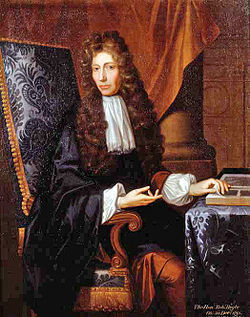The Arts of Meditation and Blogging, before the Age of Computing
 |
| Robert Boyle |
Robert Boyle (1627-1691) was also significant for his
ability to compose meditative and inspiring short essays on any topic. Examples
are The Christian Virtuoso (1690-91) and his Occasional Reflections on Several
Subjects (1665) which included a defence of his methodology.
The notion that ordinary, ephemeral topics were suitable for serious readers and profound spiritual reflection was most famously parodied in Jonathan Swift’s Meditations on a Broomstick (1701)
The notion that ordinary, ephemeral topics were suitable for serious readers and profound spiritual reflection was most famously parodied in Jonathan Swift’s Meditations on a Broomstick (1701)
But a Broom-stick, perhaps you'll say, is an
Emblem of a Tree standing on its Head; and pray what is Man, but a Topsy-turvy
Creature, his Animal Faculties perpetually mounted on his Rational; His Head
where his Heels should be; groveling on the Earth, and yet with all his Faults,
he sets up to be a universal Reformer and Corrector of Abuses, a Remover of
Grievances, rakes into every Slut's Corner of Nature, bringing hidden
Corruptions to the Light, and raises a mighty Dust where there was none before,
sharing deeply all the while, in the very same Pollutions he pretends to sweep
away: His last Days are spent in Slavery to Women, and generally the least deserving;
'till worn to the Stumps, like his Brother Bezom, he's either kicked out
of Doors, or made use of to kindle Flames, for others to warm Themselves
by.
The potential afforded by common topics and events in urban
life was also demonstrated in the magazine- style journalism of the early
eighteenth century. Most noteworthy in this regard were The
Spectator papers composed by Steele and Addison in 1711-12. The
Spectator aimed to "to enliven morality with wit, and to temper wit
with morality...to bring philosophy out of the closets and libraries, schools
and colleges, to dwell in clubs and assemblies, at tea-tables and
coffeehouses" (No. 10) In that respect there was a democratic and anti-hierarchical element that corresponds to the unrestricted ethos of blog composition.
Typically articles or papers were about 2,500 words and
together they composed over 500 of them. Although the print run was about 3000,
the publications were passed from hand to hand, or read aloud to groups. As a
result it has been estimated that perhaps as many as 60,000 people encountered
their work.
Social historian and theorist Jürgen
Habermas has proposed that The Spectator was instrumental in the
"structural transformation of the public sphere" because of its inspirational
role in fostering gentle conduct and mild mannered cultural exchanges between
member of the emergent middle class communities. Like blogging the open form contributed to a wider and more inclusive public sphere.
While interactivity is a modern technological notion, it is
nonetheless clear that Steele and Addison cultivated and played on a response
to and engagement with their readers by reflecting their community interests; by being true to life; taking
on an amicable personal tone, and even including and responding to ‘reader’s
letters’ in the course of their reflections on social topics, trends, and
customs.
The Joy of Linking - my new book: The Art of Connection: the Social Life of Sentences here.
The Joy of Linking - my new book: The Art of Connection: the Social Life of Sentences here.



Comments
Post a Comment